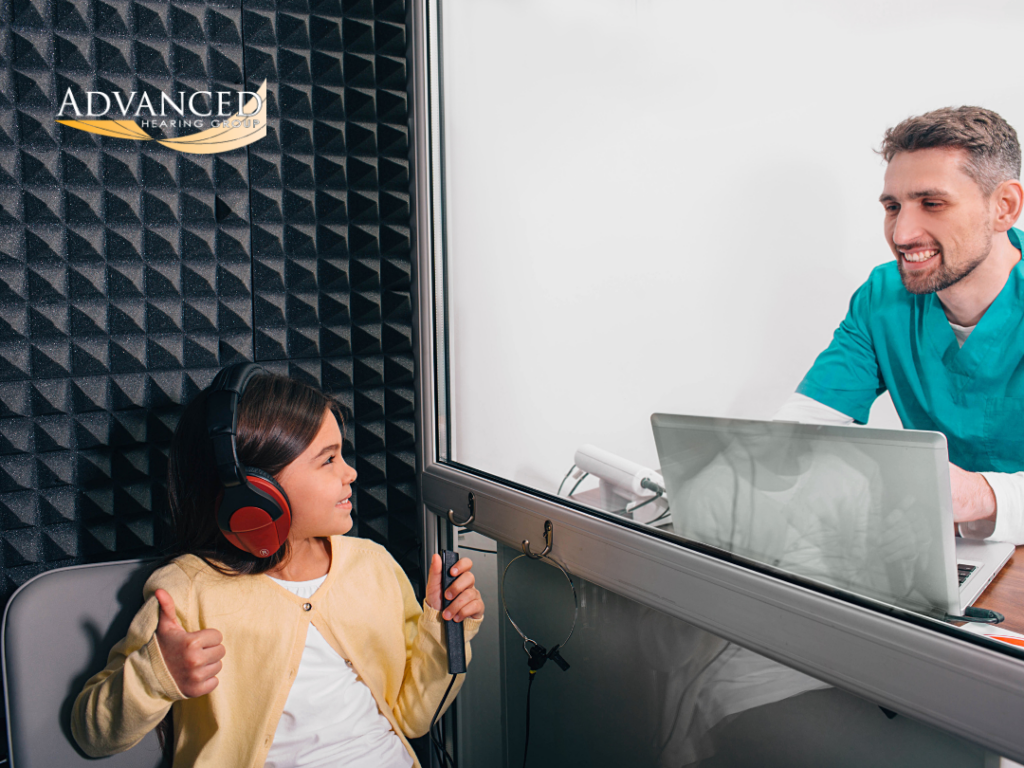 One of the concerns we hear most often at our Mesa and Scottsdale audiology clinics is patients wondering what to expect during a hearing test. We find that many people know that the end result of a hearing evaluation is learning whether or not they have hearing loss. However, they often don’t know what to expect during the hearing test itself.
One of the concerns we hear most often at our Mesa and Scottsdale audiology clinics is patients wondering what to expect during a hearing test. We find that many people know that the end result of a hearing evaluation is learning whether or not they have hearing loss. However, they often don’t know what to expect during the hearing test itself.
Today, we’re going to take all the mystery out of a thorough hearing evaluation done by a hearing professional. Then, you’ll be able to face such a test with calm and confidence.
9 Steps to Expect During a Hearing Test
1. Review of your medical history
If you’re paying a visit to a hearing professional, you may not think that the rest of your health history matters. But it does! That’s because some medical conditions, such as diabetes or heart disease, have been shown to have a connection with hearing loss. In order to get a complete picture of your hearing health, it’s important to understand your medical history, including the hearing health of close family members.
2. Review of your symptoms
What exactly are you experiencing that has caused you to schedule a hearing test? Do you find yourself constantly asking others to repeat themselves? Are your family members complaining that you turn up the TV too much? Do you have difficulty understanding conversations in noisy environments? These are all important clues to your hearing health.
Note: If one of your symptoms includes ringing or buzzing in your ears, be sure to tell your hearing healthcare provider. This could be a condition known as tinnitus and may affect your hearing test results or recommendations given after the test.
3. Understanding why you’re getting a hearing test
Part of a thorough hearing evaluation includes having a good understanding of why you’ve scheduled a hearing test in the first place. Were you encouraged to make an appointment because your spouse or other family member thinks you have hearing loss? Have YOU noticed a change in your hearing?
4. Visual check inside your ears
This is one of the most important things to expect during a hearing test … every single time. In fact, if your provider doesn’t look inside your ears before conducting any tests, it’s time to find a different hearing professional.
Looking inside your ears with an otoscope or video system is important for identifying any obstructions that could be causing hearing problems. For example, you wouldn’t believe how many people experience hearing loss simply because of impacted earwax! If hearing loss persists even after professional earwax removal, then it’s likely that there’s another cause for the problem.
5. Tympanogram test
Your ears have many delicate parts, including an eardrum, and these parts must work and move properly for normal hearing to occur. A tympanogram test will measure how well your eardrum moves in reaction to sound. The results of this particular test will influence recommendations made by your audiologist upon completion of your hearing evaluation.
6. Testing of acoustic reflexes
This part of a hearing evaluation measures the contraction of middle ear muscles in response to sound. The presence, absence, or strength of acoustic reflexes will give your hearing healthcare professional further clues about your overall hearing health.
7. Pure tone audiogram
THIS is what most people expect during a hearing test because it’s what they’re most familiar with. A pure tone audiogram involves the patient pushing a button whenever they hear a beep or tone. This type of testing is great for determining whether someone has lost hearing in a particular range, such as high or low tones.
8. Speech testing
Undergoing speech testing is probably NOT what you expect during a hearing test but this plays a vital part in understanding your hearing health. There are several different types of speech testing you may encounter:
- Speech reception threshold – Words are spoken at different tones and volumes and you must repeat what you hear.
- Word recognition testing – Words are spoken at a comfortable volume and you must repeat what you hear. This measures the brain’s ability to effectively process sound without the help of visual or contextual cues.
Not every hearing test includes speech testing. However, it’s highly recommended, especially if you are experiencing difficulty understanding conversations in noisy environments.
9. Bone conduction testing
The last thing to expect during a hearing test is a bone conduction test. This involves sending sounds through a bone oscillator that is placed behind your ear or on your forehead. The sound vibrations go directly to your inner ear, bypassing the outer and middle ear sections.
What to Expect After a Hearing Test
Learning what to expect during a hearing test can take some of the worry or stress out of scheduling one in the first place. But once you’ve had a thorough hearing evaluation done, what happens next?
The results of your hearing test will indicate whether or not you have hearing loss. If hearing loss IS present, testing can also show the type of hearing loss (conductive, sensorineural, or mixed) as well as its severity. Based on this information, your audiologist or other hearing professional will recommend an appropriate hearing loss treatment plan. This may or may not include the recommendation for hearing aids or other assistive listening devices.
The important thing to remember is that the sooner you get started with hearing loss treatment, the better you will feel and the sooner you can get back to hearing better. If you or a loved one has experienced changes in hearing, schedule an appointment with our Mesa or Scottsdale audiologists today!

